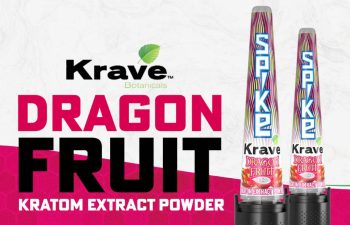Navigating the Changing Currents
As we continue to chart the course through the ever-changing waters of the hemp industry, recent legislative and regulatory developments have given rise to both challenges and opportunities for business owners and stakeholders. This article provides a synopsis of the most crucial events from the past month, alongside emerging concerns posed by new legislative proposals, particularly from the US Cannabis Council (USCC).
Cannabis Civil War
US Cannabis Council Fires First Shot
The US Cannabis Council has recently made headlines with its contentious proposal to Congress concerning the redefinition of hemp in the upcoming Farm Bill. The USCC advocates for excluding products containing detectable levels of THC and other intoxicants from the definition of hemp, effectively reclassifying them as marijuana. This move could jeopardize the $28 billion hemp industry and the livelihoods of over 328,000 workers involved in it.
This also shows that the marijuana industry is ready to wage war on the hemp industry. What we are seeing is the vested interests of large-scale multi-state operators that seek to have a stranglehold on all things Cannabis Sativa. Calls for consumer safety are a red herring
Municipal Overreaction: Chicago Plays Safety Card
Chicago is taking steps to regulate low-THC hemp-derived products. Proposed ordinances aim to restrict sales to licensed cannabis stores only, in response to concerns over product potency and consumer safety. This is another clear example of the marijuana industry making protectionist moves to ensure maximum bottom lines at the expense of the hemp industry.
Cannabis Civil War
US Cannabis Council Fires First Shot
The US Cannabis Council has recently made headlines with its contentious proposal to Congress concerning the redefinition of hemp in the upcoming Farm Bill. The USCC advocates for excluding products containing detectable levels of THC and other intoxicants from the definition of hemp, effectively reclassifying them as marijuana. This move could jeopardize the $28 billion hemp industry and the livelihoods of over 328,000 workers involved in it.
This also shows that the marijuana industry is ready to wage war on the hemp industry. What we are seeing is the vested interests of large-scale multi-state operators that seek to have a stranglehold on all things Cannabis Sativa. Calls for consumer safety are a red herring and moot in the light of substantial existing state regulations on hemp products. This is about the bottom line of large corporations, not the safety of children.
This just in: Right at press time, Republican lawmakers have moved to redefine hemp in the next U.S. Farm Bill to eliminate intoxicating cannabinoids like Delta-8 THC. New provisions distinguish between hemp for cannabinoid extraction and industrial hemp, aiming to close loopholes from the 2018 Farm Bill. This amendment could wipe out a $28 billion industry, affecting both synthetic intoxicants and non-intoxicating CBD products. Pro hemp advocacy groups are urging opposition to these changes.
Municipal Overreaction: Chicago Plays Safety Card

Chicago is taking steps to regulate low-THC hemp-derived products. Proposed ordinances aim to restrict sales to licensed cannabis stores only, in response to concerns over product potency and consumer safety. This is another clear example of the marijuana industry making protectionist moves to ensure maximum bottom lines at the expense of the hemp industry.
A Call to Vigilance and Action
As we stand firm against the tides of corporate pressure, our commitment to advocacy and proactive engagement has never been more important. Now is the time to amplify our efforts and ensure our industry’s voice is not just heard but is influential. Engage with legislators, participate in public hearings, and keep the dialogue open and assertive.
As Bill Hicks said, “This isn’t a war on drugs, it’s a war on personal freedom.” Let’s continue to champion our rights and ensure hemp thrives in a supportive legislative environment. Together, we can overcome these challenges and safeguard our industry’s future.
State Trends & Highlights
It’s been another gauntlet of the good, the bad, and the ugly across the 50 experiments in democracy for the hemp industry.

Nebraska
The hemp industry in Nebraska narrowly escaped a potentially crippling 100% tax on CBD and hemp products. After strong opposition and a spirited filibuster, the proposal was reduced to 25% before being ultimately defeated. This is good news for consumers and business owners alike, as excessive taxation would have driven prices up and pushed customers online to avoid state tax.
New Mexico
Down in the Land of Enchantment, the developments are around recreational marijuana, but it’s all cannabis, so we’re covering it here. As New Mexico celebrates two years of legalized cannabis, the state faces setbacks with repeated seizures of state-legal cannabis by U.S. border officials. These incidents began in February and have persisted, highlighting the ongoing conflict between state rights and federal law enforcement. Business owners are unfortunately in the crossfire of this conflict, with seizures totaling over $300,000 in product.
Massachusetts
imposed the Massachusetts Department of Agricultural Resources (MDAR) have introduced stringent controls over hemp processing and sales, affecting everything from packaging to the types of allowable products. Products containing “any synthetically derived THC variants such as delta-8 THC, THCO, THC10, HHO, etc.” have been banned for sale. This leaves delta-9 products under 0.3% as the most compliant and long-term viable path for business owners in Massachusetts. MDAR also sent a cease and desist letter to a hemp manufacturer ordering them to stop production of THCV products and destroy existing inventory. They claim THCV is “semi-synthetic,” which is inaccurate, to say the least. Do they also know it is non-psychoactive?
Louisiana
In Louisiana, contrasting bills HB 952 and SB 495 reflect a state deeply divided on hemp regulations. While HB 952 aims to clarify existing laws concerning consumable hemp products, SB 495 proposes more restrictive measures that could isolate the state’s hemp market from national trends, chiefly instituting a permit process that would limit out-of-state operators and proposing a ban on any THC in hemp products. SB 495 poses a serious threat to the Louisiana hemp industry. Local business owners are implored to reach out to your representatives to express their concerns.
















